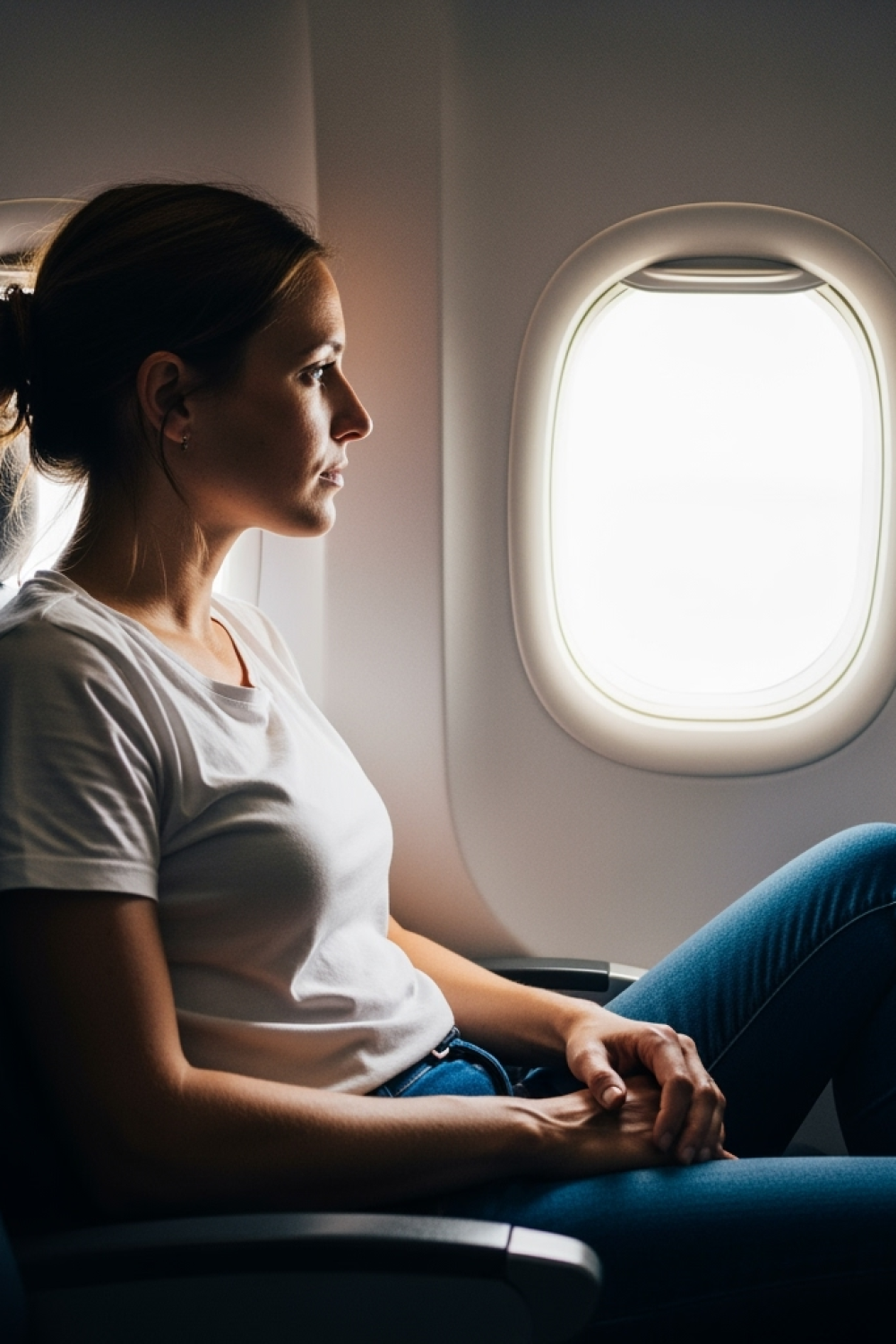Want to save this recipe?
Enter your email below and we’ll send the recipe straight to your inbox!
The Silent Shadows of Altitude
I never thought I would have to defend my right to eat a protein bar on an airplane. Yet my body was demanding it like a whispered prayer. Type 1 diabetes, my invisible companion since I was twelve, doesn’t understand rules of etiquette or the whims of others.
As a marketing consultant, I inhabit airports the way others inhabit apartments. Anonymous hotel rooms, fourteen cities last year, and always that vigilance – the one that has accompanied me since adolescence. My mother calls me her “modern nomad” when I call her from yet another terminal.
That day, on the Chicago-Seattle flight, I felt the first signs even before the plane took off. A slight dizziness, subtle trembling in my hands. My body was speaking its precise language that needed to be heeded, or face serious consequences.
Fragility Behind the Mask of Indifference
The plane was taxiing down the runway when I pulled out my protein bar. I held it like a talisman against the whims of my failing pancreas. The hiss came from the woman sitting next to me, before I could even take a bite.
“Couldn’t you wait? Our son is extremely sensitive.”
Between them, their boy of about nine, absorbed in his brand-new iPad Pro, hadn’t even looked up. He fidgeted in his seat, repeatedly kicking the one in front of him, unhappy about not having the window seat.
I put my bar away, with a heavy heart. The habit of pleasing, of not disturbing, that French politeness that sometimes works against us. My glucose monitor, however, was displaying numbers in free fall.
When the beverage cart finally appeared forty minutes later, I almost smiled with relief. But before I could even finish my order, the father, from across the aisle, announced: “No food or drinks for this row, thank you.”
The parents insisted to the flight attendant: their son couldn’t stand others eating around him. The boy, meanwhile, was devouring colorful candies, without looking up from his screen.
The Spark That Breaks the Silence
My body didn’t understand these social games, these absurd negotiations. My watch vibrated, the glucose alert resonating like a silent cry for help. I could feel cold sweat beading on my neck, my hands trembling more.
“I have Type 1 diabetes,” I finally declared to the flight attendant, in a voice loud enough for half the row to hear. “If I don’t eat now, I risk passing out or ending up in the hospital.”
The flight attendant’s tone changed instantly. “Of course, ma’am. I’ll bring that right away.”
The mother rolled her eyes. “My God, there’s always something with people. My son has needs too! He hates seeing food when he can’t eat. It’s called empathy.”
I observed the child, still absorbed in his game, absent-mindedly eating his multicolored candies.
“Your son has an iPad, headphones, and hasn’t looked up once,” I replied. “And he’s eating candy right now.”
“That’s different,” she protested.
The Delicate Dance of Truth
I took the food box and drink from the flight attendant’s hands. The relief was immediate when I felt the sugar beginning to stabilize my system. A discreet but essential victory.
“You know what else it’s called?” I asked with a polite smile. “Managing your own child. Not the entire cabin.”
Five minutes later, as I opened my laptop, the mother leaned over again.
“I feel called to educate you about my son’s condition,” she said with a strained smile.
I didn’t even blink.
“Ma’am,” I replied clearly, “I don’t care. I’ll manage my diabetes as I see fit, and you can manage your spoiled prince as you see fit. I won’t risk my health because you can’t handle a tantrum. Next time, book the entire row. Or better yet, take a private jet.”
The silence that followed was worth all the altitude. The last two hours passed without incident. The child never looked up from his game or noticed anyone eating. The parents? They didn’t say another word to me.
The Sky as a Silent Witness
The particular light that filters through airplane windows transformed the cabin into a confessional chamber. The clouds drifted by, indifferent to our small human battles.
I thought about all the daily negotiations that people with invisible illnesses must conduct. Those constant explanations, justifications, that feeling of having to prove that our bodies still belong to us.
The incident seemed tiny from the sky’s perspective – a woman eating a protein bar, parents overprotecting their child. But in this pressurized microcosm, it was a silent revolution, an affirmation of life.

